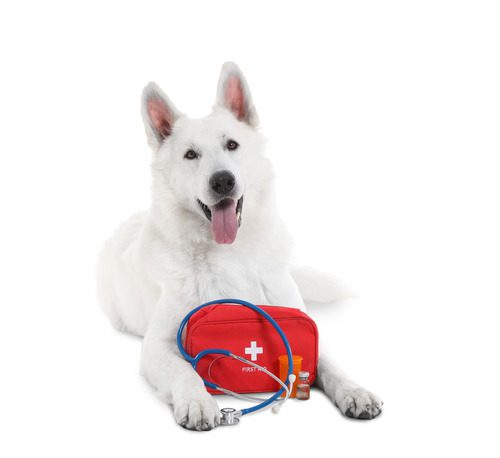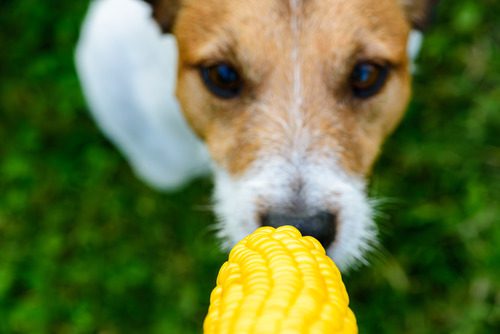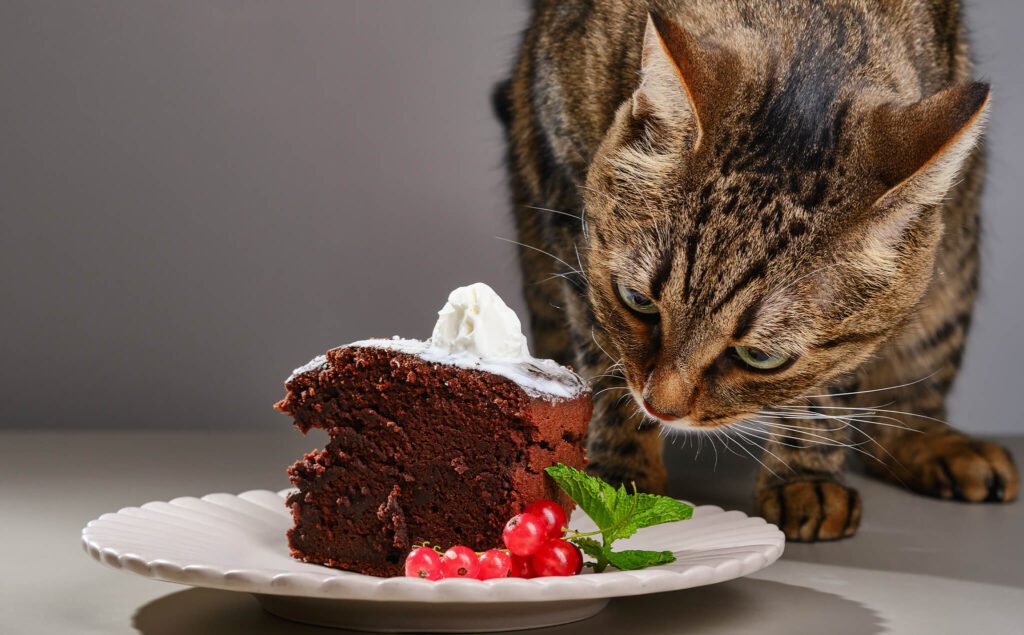Top 5 Dog Constipation Causes
Digestive issues can show up from time to time when you own a dog. Given a little time, most of these upset stomachs pass on their own. However, if your dog has been struggling with constipation for more than a couple of days, there might be an underlying reason for this issue that needs to be addressed.
Constipation can lead to your dog being uncomfortable, and vomiting, and it can even turn into an emergency vet visit if your dog has been constipated for long enough. You need to know the common reasons for this condition so that you can make sure that your dog doesn’t end up feeling sick for days or weeks.

Signs of Dog Constipation
The common signs of constipation in dogs are:
- Difficult bowel movements
- Infrequent bowel movements
- Being uncomfortable and getting up and lying down over and over
- Straining to pass stool
- Hard and dry stool
- Circling while trying to pass stool
- Laying on the ground and scooting on the stomach
- Growling when their abdomen is touched
Your dog might only show one or two of these symptoms, and they might not be that severe. However, that does not mean that your dog is not suffering from constipation.
Causes
Listed below are the top 5 causes of this condition:
1. Ingested Foreign Objects
If your dog has eaten a bone, has been chewing up their toys, or has been digging in the dirt and eating some of it, they could have a partial obstruction that is leading to constipation. This is a condition that needs to be addressed with the help of a vet so that your dog does not suffer from damage to the digestive tract. Your vet can take x-rays and look to see if there is anything lodged in the digestive tract.
Your vet might be able to treat this condition without surgery, but surgical intervention is commonly needed when dogs are suffering from a blockage or a partial obstruction.
2. Lack of Exercise
When your dog is too sedentary, their bowels might not be triggered to move often enough. This can lead to your dog feeling poorly in general. Make sure that your dog is going out for a walk at least once a day so that their gut is triggered to move and take care of its job. Most dogs will defecate while on a walk as well, which means that you will be able to confirm that their gut is healthy and is working as it should be.
3. Insufficient Fiber in the Diet
If your dog does not get enough fiber every day, they might not be able to defecate readily. Fiber is built into dog kibble products, but if you are feeding raw dog food or butcher cuts to your dog, they might not be getting enough fiber. You can supplement fiber with things like canned pumpkin, but be sure that you add this new dietary element slowly. You do not want to shock the digestive tract and cause an upset with your introduction of fiber. Fiber and exercise can often go hand-in-hand to get your dog’s gut back to working more efficiently.
4. Dehydration
If your dog is not drinking enough, there will not be enough moisture in their system to pass stool readily. Your dog might be feeling sick, might have eaten something that they should not have, or might not have access to clean water. Any of these situations can lead to a reduction in water intake and then as a secondary condition, constipation.
You can always do the tent test and pull up gently on a fold of your dog’s skin to see if they are dehydrated. If the skin does not immediately relax back when you let go, your dog is not hydrated enough. Your vet might have to help your dog to get back to being hydrated enough with intravenous fluids if your tent test shows that they are significantly dehydrated.
5. Anal Gland Issues
The anal glands in dogs need to be expressed (cleaned out) on a regular basis. If they are not cared for properly, they can become full, infected, or even rupture. Anal gland issues can lead to your dog having trouble or being unable to defecate. Your vet will need to be involved in the resolution of this issue, and it is always a good idea to let experts express your dog’s anal glands each time that they need to be cared for. There are many things that go wrong when you do not know how to correctly express anal glands.
Taking care of this part of your dog’s well-being is essential, no matter what breed they are. Dogs, big and small, need to have their anal glands expressed on a regular basis to avoid digestive upsets. Even if your dog is not displaying the common signs associated with blocked anal glands, this is something that needs to be ruled out by a vet or a veterinary technician.
Seek Veterinary Care if Your Dog is Showing Signs of Constipation
While constipation in dogs can usually be resolved by making small changes in your dog’s routine and feeding plan, you should not ignore ongoing constipation that is not easily remedied. Things like obstructions and tumors can cause symptoms that appear to be mild constipation at first. When these issues do not get attention right away, they can lead to a life-threatening situation for your dog.
Making sure that your dog is defecating frequently and correctly is key to their overall health. Taking your dog for walks, feeding them correctly, and making sure that they have enough water at all times are key aspects of preventing this kind of digestive upset. Make sure that you take the signs of constipation seriously and take action to remedy this problem before it leads to more severe health issues for your pet.
For more information on dog constipation, contact Emergency Veterinary Care Centers by calling one of our locations. Our team is here for you 24 hours a day, so you don’t have to wait to be treated. We provide compassionate care and will be there for you and your pet every step of the way.
Recent Posts
Lyme Disease in Dogs: A Complete Guide for Pet Owners
Lyme Disease in Dogs: A Complete Guide for Pet Owners Discovering that your dog may be at…
Parvo in Dogs: What it is, Symptoms and How to Protect Your Pet
Parvo in Dogs: What it is, Symptoms and How to Protect Your Pet Parvovirus in dogs, commonly…
6 Common Pet Emergencies in Westville, IN
6 Common Pet Emergencies in Westville, IN When your pet faces an emergency, knowing what to expect…
My Dog Ate a Corn Cob, What Should I Do?
My Dog Ate a Corn Cob, What Should I Do? Discovering your dog has eaten a corn…
What To Know about Chocolate Poisoning in Cats and How to Protect Them
What To Know about Chocolate Poisoning in Cats and How to Protect Them Chocolate is a treat…






